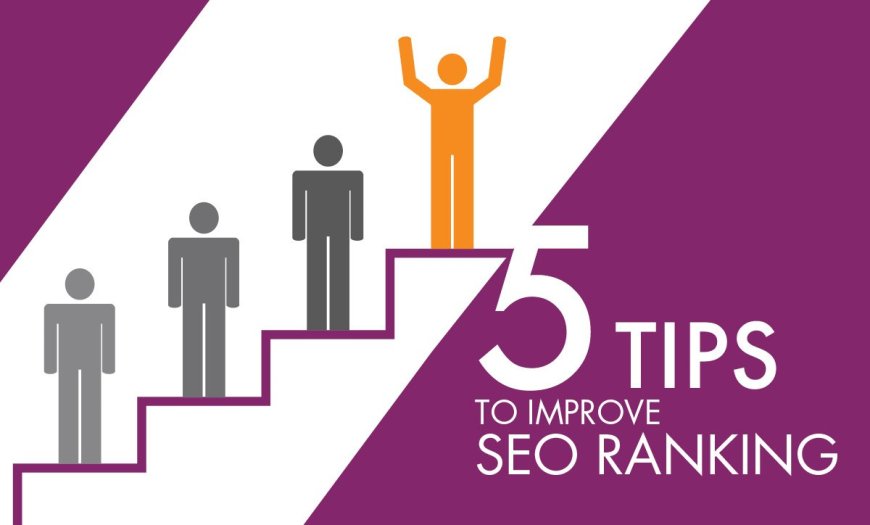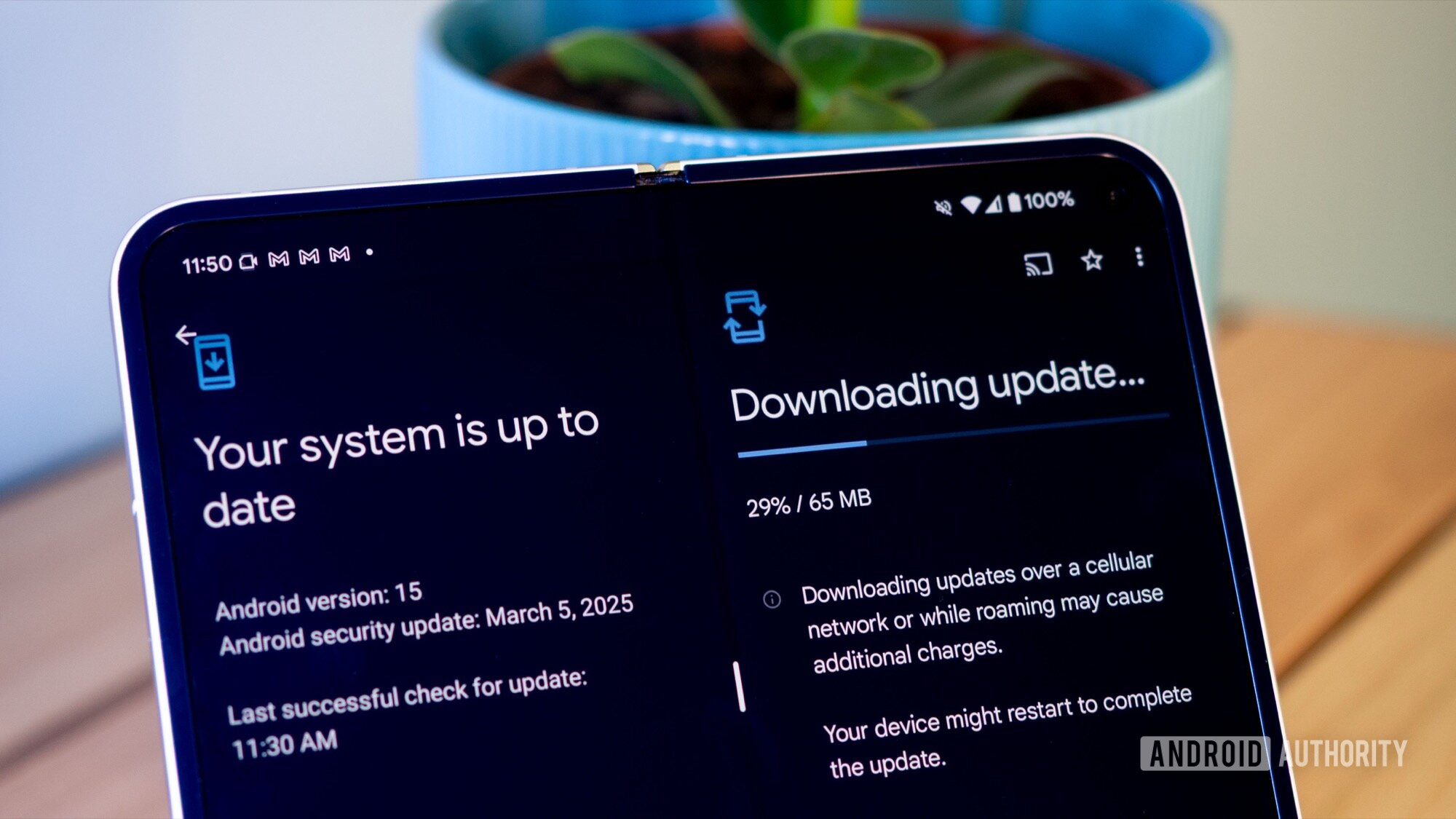Five Ways to Improve Your Site's Ranking (SEO)
This guide explores 5 powerful strategies & highlights the importance of consulting search engine optimization (SEO) specialists for long-term success. Improve your website traffic & conversions!

In today's digital age, a website is often the first impression a potential customer has of your business. But simply having a website isn't enough. To truly thrive online, you need your website to rank high in search engine results pages (SERPs). This is where consulting search engine optimization (SEO) becomes crucial.
SEO is the process of optimizing your website and its content to improve its visibility in search engine results. The higher your website ranks for relevant keywords, the more organic traffic you'll attract, ultimately leading to increased brand awareness, leads, and sales.
However, SEO is an ever-evolving field, and what worked yesterday might not be as effective today. This blog delves into five powerful ways you can improve your website's ranking in 2024 and establish a strong foundation for long-term SEO success.
1. Keyword Research & Content Strategy:
The cornerstone of any effective SEO strategy is keyword research. Identify the keywords and phrases your target audience is searching for related to your industry and offerings. Consulting SEO specialists can help you conduct in-depth keyword research, considering factors like search volume, competition level, and user intent.
Here are some key aspects of keyword research to consider:
-
Short-tail vs. Long-tail Keywords: Short-tail keywords are highly competitive but offer high search volume (e.g., "running shoes"). Long-tail keywords are more specific and have lower competition (e.g., "best running shoes for women with plantar fasciitis").
-
Informational vs. Transactional Keywords: Informational keywords are used for research purposes (e.g., "how to lose weight"). Transactional keywords indicate purchase intent (e.g., "buy protein powder").
-
Search Intent: Understanding why someone searches for a particular keyword is crucial. Are they looking for information, a specific product, or a service? Tailor your content to match the user's intent.
Once you have a solid list of target keywords, develop a content strategy that incorporates those keywords naturally throughout your website's content. This includes blog posts, product descriptions, landing pages, and even meta descriptions.
2. High-Quality Content Creation:
Content is king in SEO. Fresh, informative, and engaging content plays a vital role in attracting and retaining website visitors. Search engines prioritize websites that offer valuable content that addresses users' needs and provides a positive user experience.
Here's what constitutes high-quality content for SEO:
-
Informative and Valuable: Your content should answer user queries comprehensively and provide actionable insights.
-
Original and Unique: Avoid plagiarism and strive to offer fresh perspectives and insights on your chosen topics.
-
Well-Structured and Readable: Structure your content with clear headings, subheadings, and bullet points for easy readability.
-
Optimized for Target Keywords: Naturally integrate your target keywords throughout the content without keyword stuffing.
-
Visually Appealing: Include high-quality images, infographics, and videos to break up text and enhance user engagement.
3. Technical SEO Optimization:
Technical SEO focuses on the technical aspects of your website that impact its search engine visibility. Consulting SEO specialists can help you ensure your website is technically sound and adheres to search engine best practices. Here are some fundamental technical SEO considerations:
-
Website Speed: A fast-loading website is crucial for user experience and SEO. Optimize images, minify code, and leverage caching mechanisms to improve website speed.
-
Mobile-Friendliness: As mobile browsing continues to dominate, ensure your website is responsive and provides an optimal user experience on all devices.
-
Structured Data Markup: Implement structured data markup to provide search engines with richer information about your content, potentially leading to richer search results.
-
Clean Internal Linking Structure: Create a clear hierarchy of web pages and utilize internal linking to connect relevant pages within your website.
-
XML Sitemap Submission: Submit your website's XML sitemap to search engines to improve their ability to crawl and index your website's content.
4. Backlink Building:
Backlinks are essentially links from other websites pointing to your website. Search engines consider backlinks as a vote of confidence in your website's credibility and authority. Earning high-quality backlinks from relevant and reputable websites can significantly improve your website's ranking.
While backlink building can be a complex process, here are some strategies to consider:
-
Create High-Quality Content: The best way to attract backlinks naturally is by creating valuable and link-worthy content that others want to share.
-
Guest Blogging: Contribute guest posts to relevant and high-authority websites in your industry, including a backlink to your website within your author bio.
-
Broken Link Building: Find broken links on relevant websites and create content that can serve as a better replacement, potentially earning a backlink from the original website owner.
-
Online Directories and Listings: Submit your website to relevant online directories and business listings, ensuring your NAP (Name, Address, Phone number) consistency across platforms.
5. Local SEO Optimization (if applicable):
If your business has a physical location and caters to a local audience, local SEO optimization is crucial. Local SEO helps your website rank higher in search results for local searches related to your products or services.
Here are some key local SEO strategies:
-
Claim and Optimize Your Google My Business Listing: Claim and optimize your Google My Business listing with accurate information, high-quality photos, customer reviews, and relevant keywords.
-
Local Citations: Ensure your business information (NAP) is consistent across various online directories and local listing platforms.
-
Positive Online Reviews: Encourage satisfied customers to leave positive online reviews on Google My Business, Yelp, and other relevant platforms.
Conclusion: A Continuous SEO Journey
SEO is an ongoing process that requires continuous effort and adaptation. The five strategies explored in this blog can serve as a strong foundation for boosting your website's ranking in 2024. However, remember that SEO best practices evolve constantly. Stay updated on the latest trends, monitor your website's performance, and be prepared to adjust your approach as needed.
Consulting with a reputable SEO specialist can provide valuable guidance and expertise in optimizing your website for long-term SEO success. By implementing these strategies and staying committed to ongoing SEO efforts, you can leverage the power of search engines to attract more qualified traffic, convert visitors into leads and customers, and ultimately achieve your business goals.
What's Your Reaction?
 Like
0
Like
0
 Dislike
0
Dislike
0
 Love
0
Love
0
 Funny
0
Funny
0
 Angry
0
Angry
0
 Sad
0
Sad
0
 Wow
0
Wow
0

















































